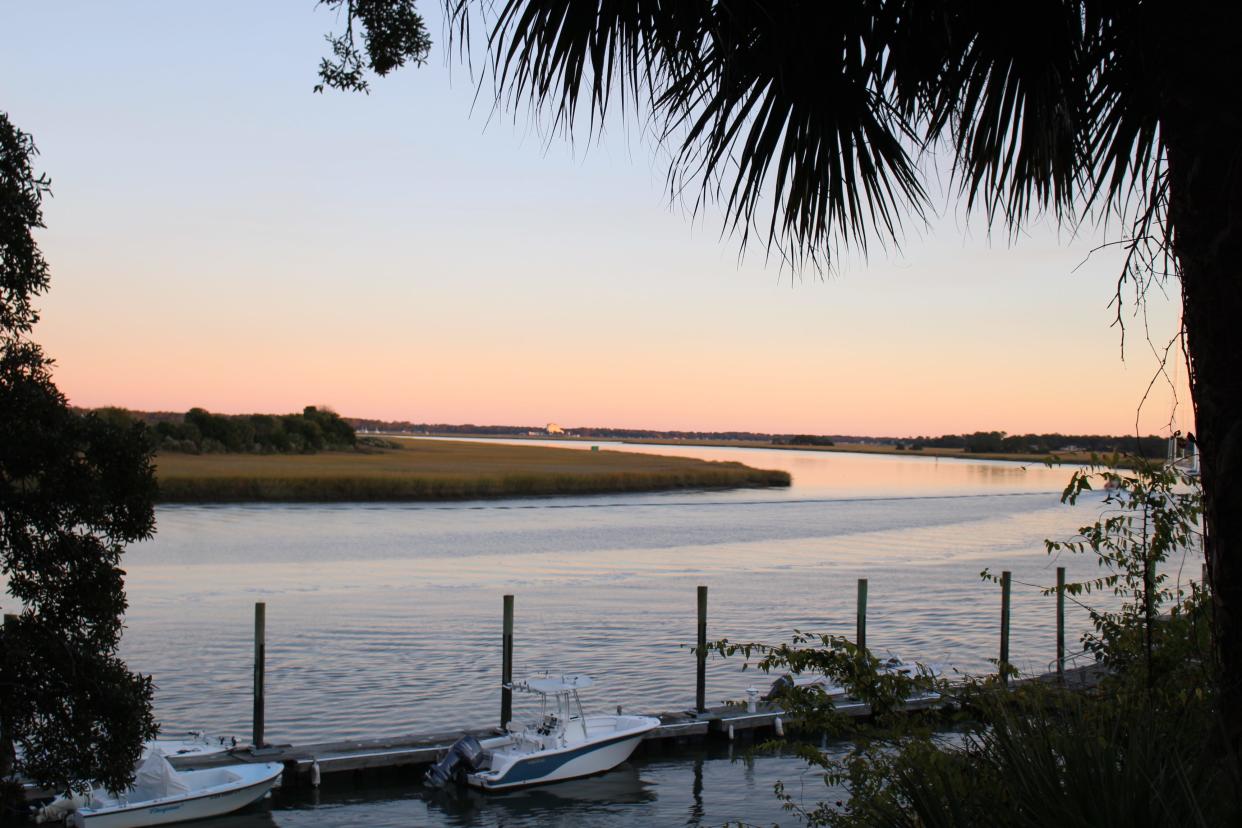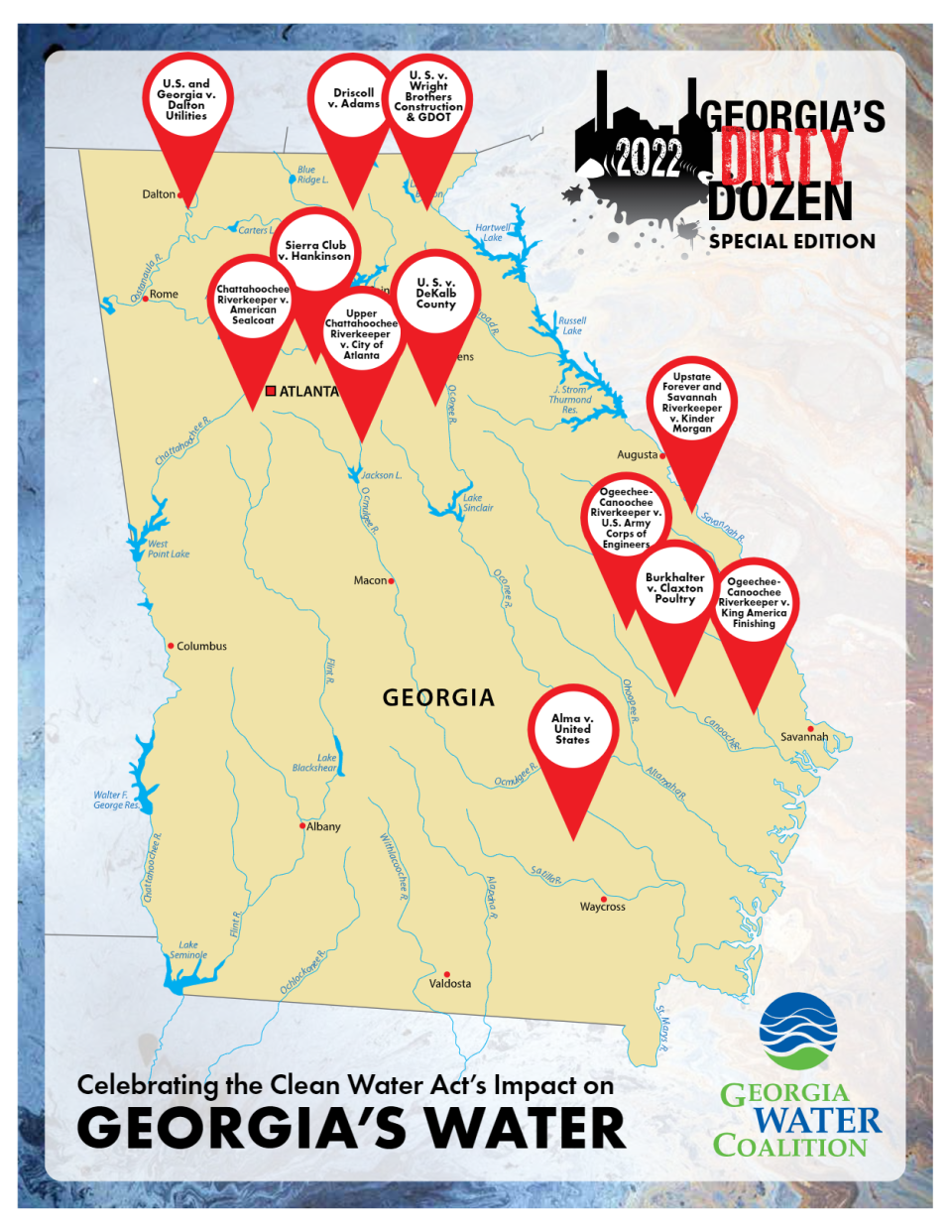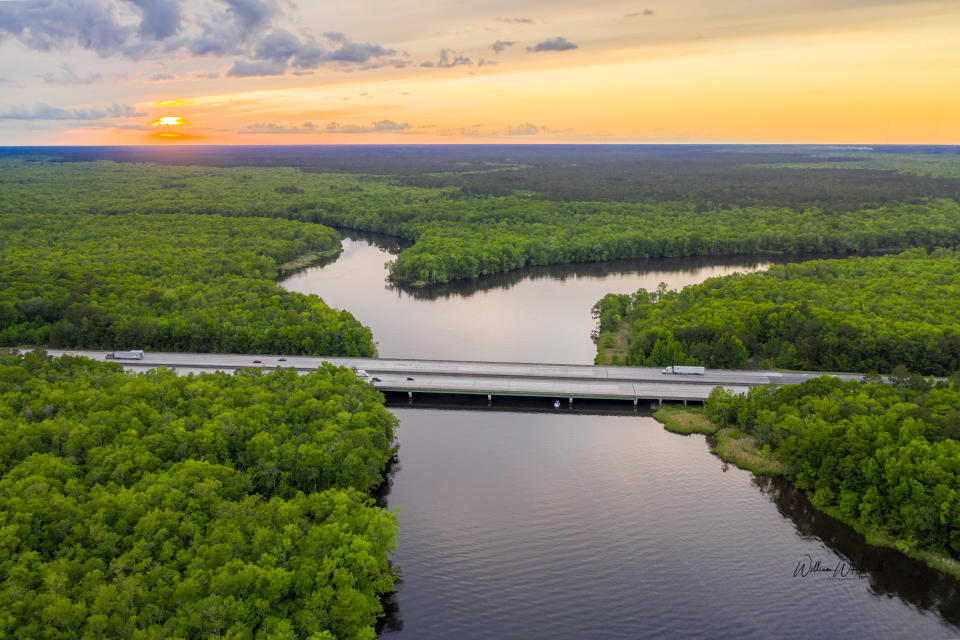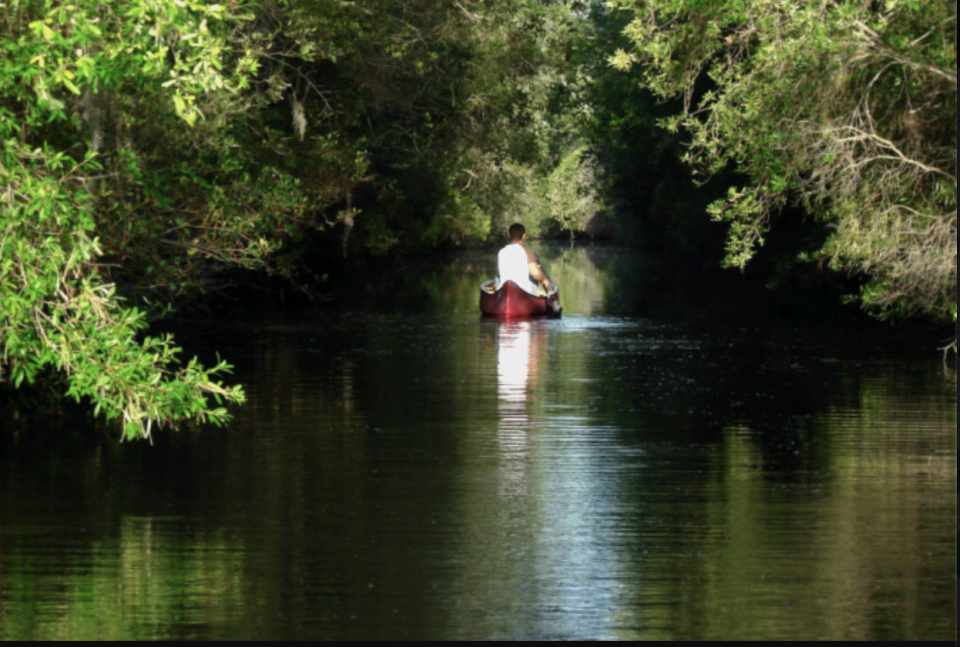Dirty Dozen: Report highlights Clean Water Act's 50-year legacy protecting state's waters

Each year, the Georgia Water Coalition releases its "dirty dozen," a list of the top sources of pollution across the state impacting waterways. But this year, to celebrate the 50th anniversary of the Clean Water Act, presented something different.
The organization wrapped up its annual tradition by highlighting the 12 biggest pollution events in recent Georgia history which were successfully addressed thanks to the passage of the landmark environmental law.
To view the full report with summaries of each case, visit bit.ly/3VG01th.
More on the Okefenokee Swamp: Environmental groups sue Army Corps of Engineers over Okefenokee swamp protections
Lawsuit over federal protections:: Okefenokee Swamp mine is back on as Army Corps of Engineers settles lawsuit
Making a difference
Georgia Water Coalition is a consortium of more than 285 organizations, businesses and faith-based groups working together to promote statewide water policy that ensures enough clean water for current and future generations.
"Throughout the state, pollution from municipal, industrial and agricultural activities pose an ongoing threat to our rivers, lakes and wetlands," said Joe Cook of the Georgia River Network. "Water pollution continues to have adverse and disproportionate effects on communities of color and low-wealth communities."

The court cases, one of which reached as high as the U.S. Supreme Court in the case of Upstate Forever and Savannah Riverkeeper v. Kinder Morgan, enforced protections for the environment through stopping or renegotiating development, increasing compliance and enforcement as well as addressing sewage, sediment and other pollutant sources entering waterways.
For one participant, the Clean Water Act was an impetus for lifelong work in conservation.
Inspiring conservation
"When we went to the (Georgia Environmental Protection Division), they said we were the only ones complaining," according to Linda Smith.
In the 1990s, she and her family had seen the beloved waters of the Canoochee River next to their home grow thick with algae and pollution due to runoff from the nearby Claxton Poultry chicken processing facility just upstream.
Complaints hadn't been well recorded by the agency, Smith said, so she and her sister, Sylvia, got to work documenting the extent of the pollution.

EPD investigations determined that the poultry plant had been spraying wastewater onto fields which was running into the river.
In 2000, the sisters filed a lawsuit against the company under the Clean Water Act. Part of the settlement was that Claxton Poultry funded for five years a Riverkeeper organization for the Canoochee River, which today has evolved to become the Ogeechee Riverkeeper.
"What struck me most about all the cases that are included in the Dirty Dozen report this year is that in most of those cases, citizens are the ones that file the complaints or file the lawsuits and get things corrected," said Cook from Georgia River Network.
He said that citizens are also at the heart of spearheading the response to environmental contamination and should continue to play an important part.

More work to do
While the Clean Water Act has ushered in environmental wins throughout the state, there are a slate of new challenges that still need to be addressed.
All of these sources of pollution are occurring amidst an unravelling of wetland protections since the Trump administration.
Rena Peck, director of the Georgia River Network, said that the Georgia Water Coalition is calling on the state Environmental Protection Division to reject permit applications in order to prevent a mining development on the Okefenokee Swamp.
While the area had previously received federal protections, it is now only protected at the state level. They are also seeking legislatures to pass policies protecting North America's largest blackwater swamp permanently.
Soil amendments: A Plague of Flies: Citizens seek help with smell and flies from neighbors’ fertilizer applications
Sludge: Second round of public comments open for controversial soil amendment regulations
Another area where the redefining and shrinking of wetland protections has come up is with excessive dirt runoff similar to the case U. S. v. Wright Brothers Construction & GDOT. Savannah Riverkeeper Tonya Bonitatibus said her organization has been working on a similar issue near Lake Burton.
"Except this time, there's a lot more questions about the streams that are coming in and whether those actually deserve regulation," Bonitatibus said.
Bonitatibus said another challenge for water conservationists is the lack of regulation of soil amendments, industrial waste put on land as an alternative to fertilizer.
Lastly, the group also called upon the EPD to require Georgia Power to excavate coal ash — the leftover produced from burning coal — from its unlined ash ponds that are now polluting groundwater and to store in dry-lined ponds.
Looking toward the future, the organizations said the Clean Water Act is still a powerful tool to correct pollution in the state. When it comes to fixing these issues, Peck, Bonitatibus, and former longtime EPD employee Bert Langley said one of the largest barriers is EPD funding.
"The EPD has always had to do our best to prioritize the ones that get our biggest bang for the buck," Langley said.
Marisa Mecke is an environmental journalist. She can be reached at mmecke@gannett.com or by phone at (912) 328-4411.
This article originally appeared on Savannah Morning News: Dirty Dozen highlights Clean Water Act's protection of Georgia waters

